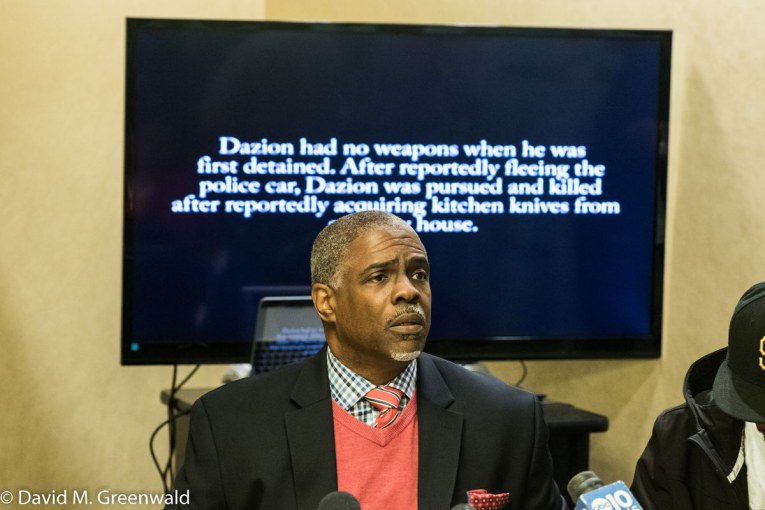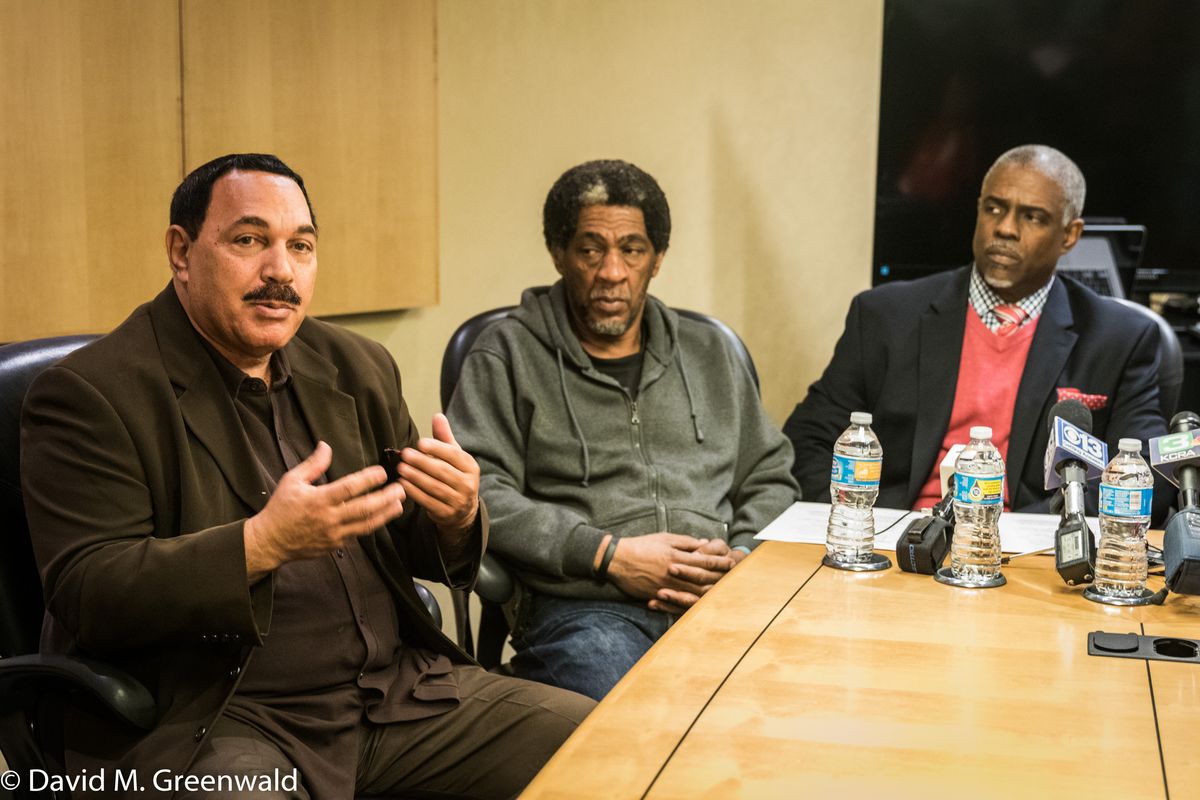

The “other thing” I did this weekend was attend the Friday press conference in Sacramento on the shooting of Dazion Flenaugh. (Read the Vanguard article on that here).
During the press conference, a good deal of concern was raised, and rightly so, by the video which showed the police officers calling Mr. Flenaugh a “freak” and telling a bystander to “just hit him with a baseball bat a couple times” to “mellow him out.”
Betty Williams, head of the Sacramento NAACP, said, “NAACP is concerned about the culture of law enforcement that they’re doing this again. We shouldn’t be at this table again.”
The mention of “the freak” and the “baseball bat,” she said, “tells you the culture of law enforcement.
“Does it only happen with African Americans?” she asked. “It appears to be.”
Mr. Flenaugh’s brother, Damon Flenaugh, asked, “Is that procedure to handcuff a dead body?”
Mark Harris, attorney for the family, explained that when Dazion Flenaugh was bleeding out on the sidewalk, “he lay dying in the street, there was no attempt to revive him, there was attempt to assess whether he was dead or alive. He had an involuntary jerk and they thought he – they were getting ready to open fire on him again.
“This is just inhumane, you wouldn’t treat an animal this way,” he said. “Then they tried to cuff him and there was a discussion as to whether they should cuff him behind or in front. He’s lying on the street, bleeding out and these inhumane folks are having this kind of discussion.”
What caught my attention was that, later in the day, the Sacramento DA’s office concluded that officers were justified because they reasonably believed they were defending themselves and others from an imminent threat.
Maybe they were – but, once again, I seem to be reminded of the Chicago report which concluded that “the police have no regard for the sanctity of life when it comes to people of color.”
To make matters worse, Sacramento Interim Police Chief Brian Louie issued a statement, “The officers involved in this incident acted courageously to protect the citizens of our community. I am very proud of the work these women and men do daily, serving our city.”
Did the officers act appropriately in shooting Mr. Flenaugh at the point that they did? Hard to know with the evidence that we have available – and one of the complaints by Mark Harris is the lack of cooperation from the authorities in getting the family that information.
However, you now have an officer on tape telling a citizen to beat a mentally ill man with a baseball bat to “mellow him out,” and that after calling him “a freak.”
Richard Owen, co-chair of Law Enforcement Accountability Directive (LEAD), said that Mr. Flenaugh was calm and the moment he was called a freak, he started getting agitated, “as anyone would.”
The audio capture on the video is reminiscent of the other highly publicized officer-involved killing in Sacramento. In the Joseph Mann case, the microphone captured the officers talking about running over the homeless man.
“F— this guy,” the officer says before aiming his police cruiser at the mentally ill homeless man that he and his partner had been sent out to confront. “I’m going to hit him.”
“Okay, go for it. Go for it,” his partner responds, his voice recorded on the Sacramento police cruiser’s dash cam.
In the Flenaugh case, we have audio of the officer telling a citizen to beat a mentally ill guy with a baseball bat, and the acting chief of police, after the release of the video, praising the work of the officers and talking about how proud he is to work with them.
If you were an African American, would you not think perhaps Black Lives Do Not Matter to the police?
As Richard Owen put it, he is particularly concerned “about the words that were used in this case. Words matter. Words have meaning, otherwise we wouldn’t use them.”
Mr. Owen brings up another point of concern – one of the problems with the video is that there are huge sections of time that are missing.
“We are very concerned,” he said. “Subsequent to LEAD getting involved, the police department has created a policy governing body cameras, within that policy believe it or not, police officers are given discretion as to when they can turn the camera on and off.”
He said they would fight them in court on that because they don’t think officers ought to have discretion about that. “If officers can turn it off at critical moments (as they did in this case apparently) that means that evidence is being denied to the people about what actually transpired,” he said.
Body worn cameras have been one of the key improvements to help police and investigators determine what happened in the moments leading up to a critical incident, but, as we are starting to see, there are limitations to that technology and administrative guidelines are in need of update.
—David M. Greenwald reporting

I find it sad that there has been no commentary, from me or anyone else, about this issue which I think it at least as important as any publicity stunt from MY and his enablers. In my case, it was because while I find it relatively easy to write about ideas in the abstract, I could not find words to express my concern about these two cases.
It should be harder for us to write off the inappropriate police attitude and procedures here in Sacramento as just a “few bad apples” when it is occurring repeatedly right in our back yard and being justified by the Interim Police Chief. Now we cannot know from the information available whether the shooting itself was justified, but there is no conceivable justification for calling a detainee a “freak” nor for instructing a citizen to strike another citizen with a baseball bat, not necessarily for self defense, but to “mellow him out”. Nor is it justifiable to falsely ( if that is what happened) inform a family that no tape existed when in fact it did.
If any department deserves independent investigation, Sacramento clearly does based on these two cases.